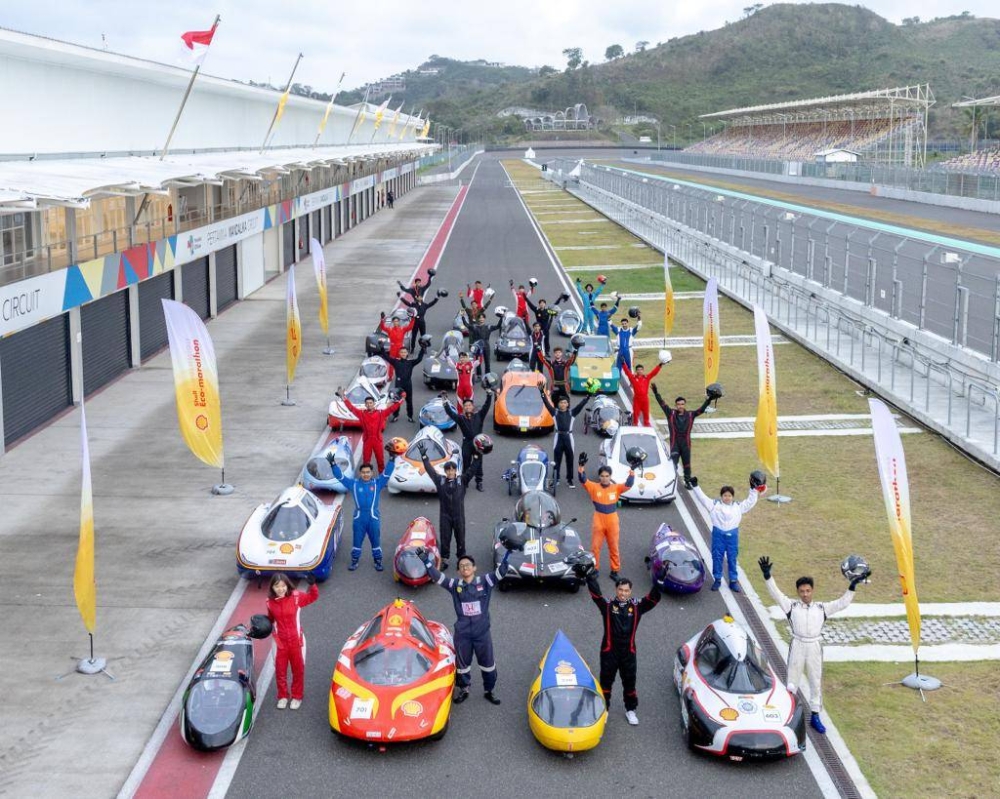
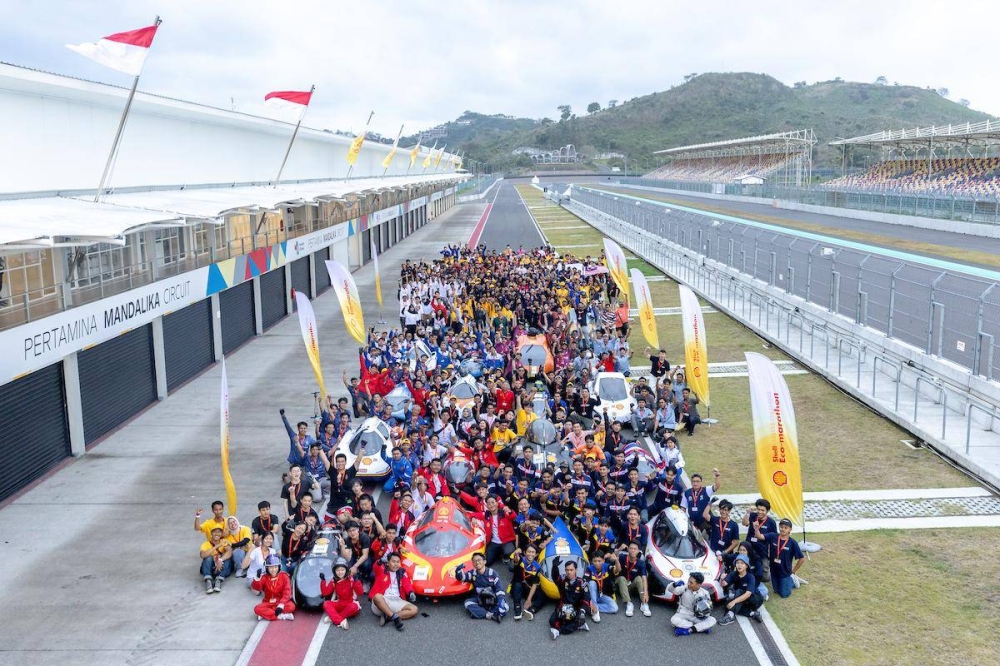
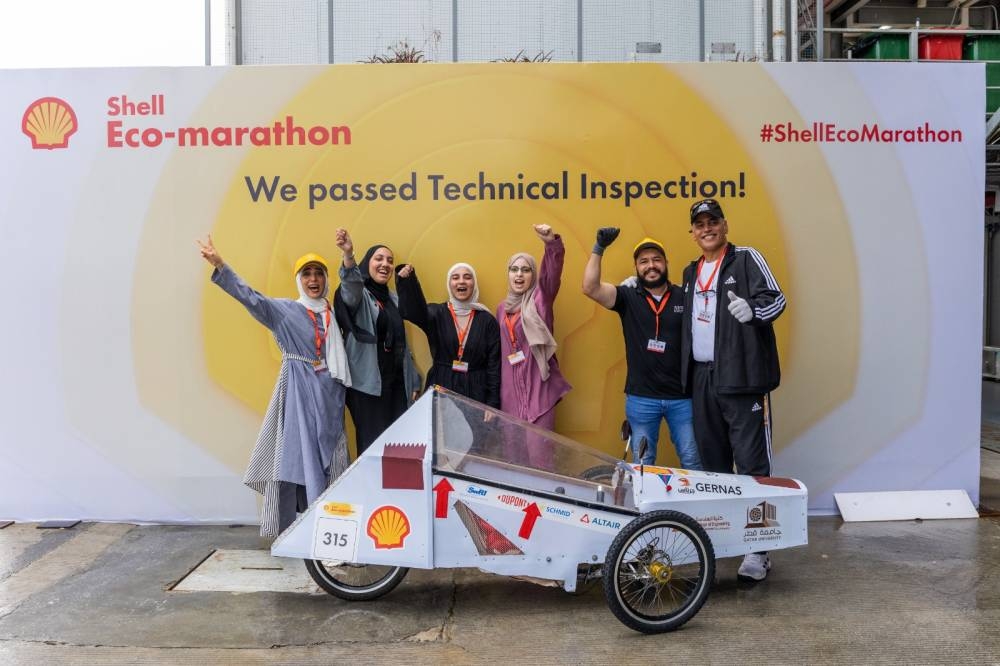
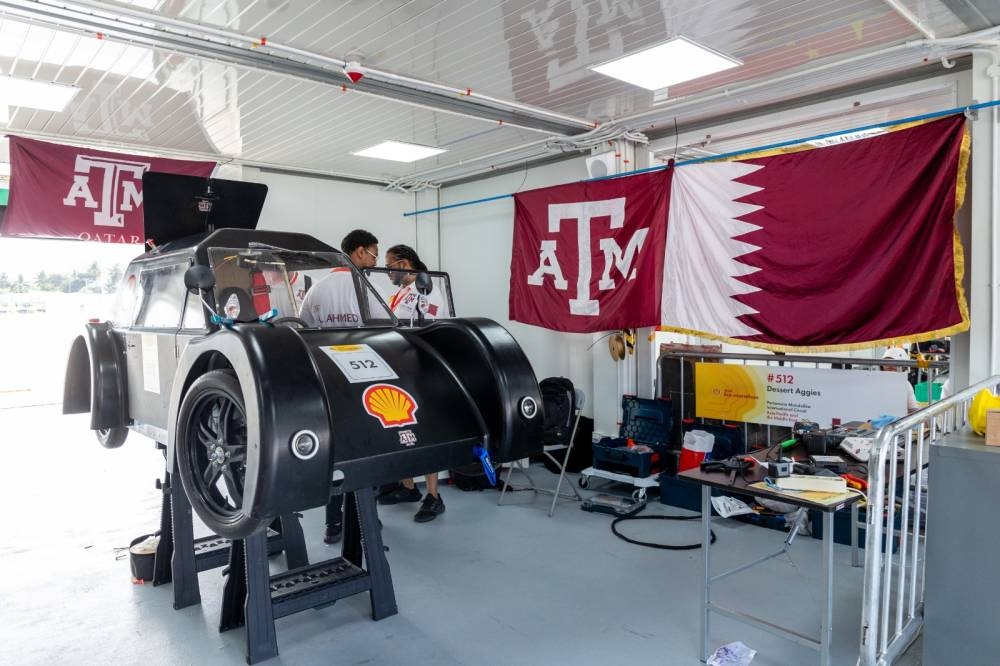
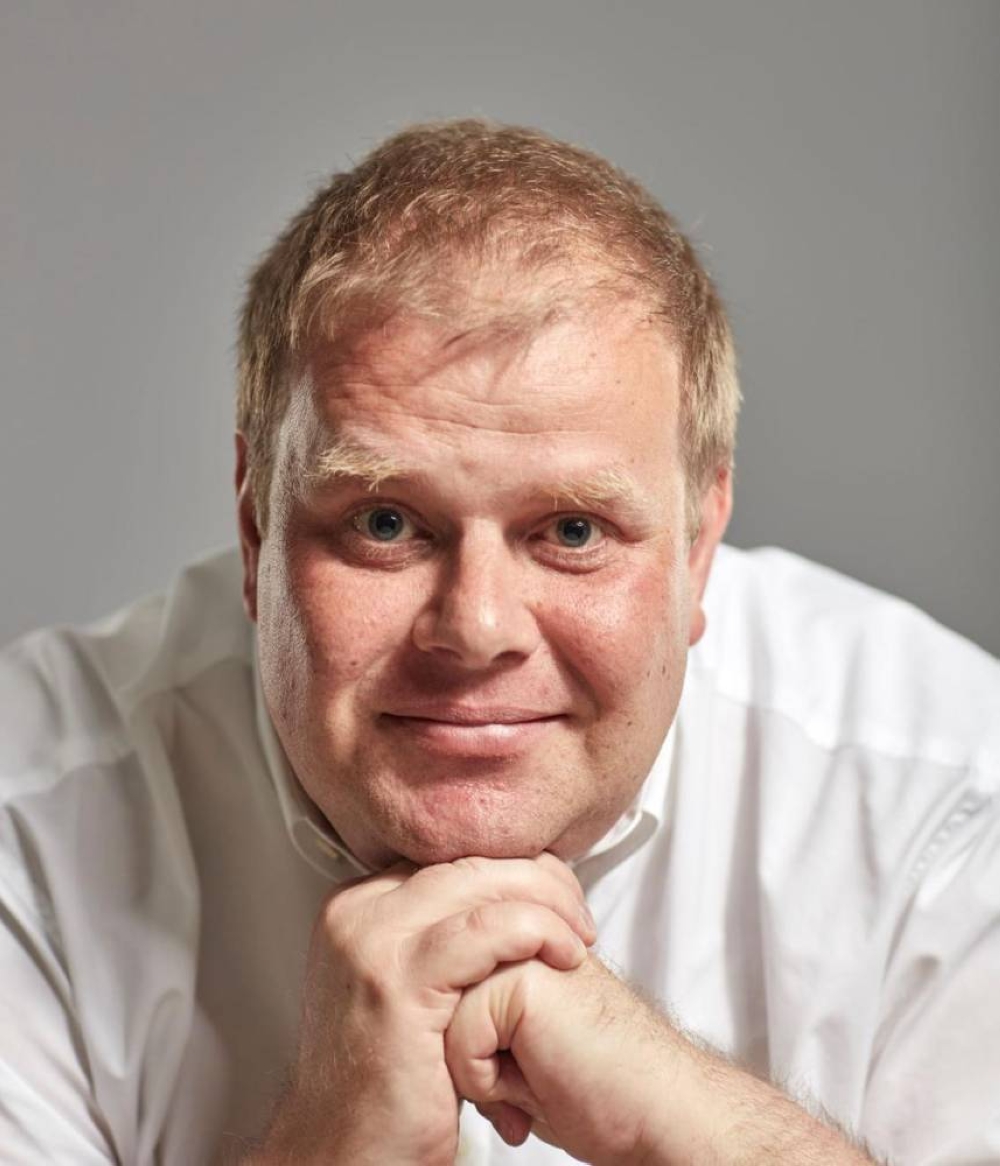
The activities of the (Shell Eco-marathon) for the Asia-Pacific and Middle East 2023, were concluded, which was held on the Indonesian island of Lombok for a wekk, with the participation of 75 universities from 13 countries, including Qatar University and Texas A&M University as well as universities from Saudi Arabia, Malaysia, Korea and the host country, Indonesia.
Qatar University had passed the technical test through a car powered by an electric battery made of eco-friendly materials, classified as a prototype. It was completely manufactured by a student team of girls at the College of Engineering from materials that can be recycled, most notably aluminum and plastic. This was the sixth participation of the university in the Shell Eco-marathon. Texas A&M University also passed the technical test.
Teams from Thailand, South Korea and Indonesia had shown exceptional energy efficiency within the first-class category. Moreover, Singapore and Indonesia proved their strength, with four teams from these countries booking their place in the finals of the upcoming World Championship, which is to be held in India from 10 to 12 October.
Norman Koch, General Manager of the Shell Eco-Marathon, praised the participants, saying: “We are very impressed with the high level of performance and innovative ideas demonstrated by these young minds. Despite facing many challenges during the competition, the teams persevered and achieved impressive results in the competition of energy efficient vehicle design.
The idea of the Shell Eco-marathon arose as a competition challenging teams of high school students, colleges and universities from all over the world to design and build the most energy-efficient vehicles to meet future energy challenges and promote smarter and more sustainable technology.
The idea of the festival began when a number of Shell engineers bet in 1939 on someone who would travel a longer distance with less fuel. The idea seemed absurd at the time and faded with the passage of time, but with the exacerbation of the climate and energy crises, Shell decided in 1985 to revive it globally to last 38 years and become an international competition, in which the winners receive grants from international companies such as Ferrari, Boeing and NASA, to start with training and might end with getting a job for the privileged. According Norman Koch, Head of Shell’s Brand Operations, the best performance that was achieved during this period was carried out by a French team that traveled a distance of 3750 kilometers with one liter of fuel.
The cars of the urban concept category, were closer in appearance to passenger cars with four wheels that have the standards and specifications suitable for the roads, and the participants could choose one of three energy categories for them (electric battery, hydrogen fuel cell, and internal combustion engine (gasoline, ethanol, diesel .)
During the current marathon, students from the Asia-Pacific and Middle East regions were competing with their ultra-energy-efficient cars, which they designed and divided into two categories, with the aim of driving the farthest distance using the least amount of energy. The Model One category focuses on ultra-efficient, lightweight designs, typically three-wheelers on energy efficiency in the form of a traditional four-wheel vehicle design that is closer to passenger cars in appearance, and tailored to road specification. Participants could then choose from three energy categories, battery electric, hydrogen fuel cell and internal combustion engine petrol, ethanol or diesel.
Norman Koch, Head of Shell’s Brand Operations , had confirmed that this unique programme, which was launched many years ago, was designed to interest the minds of young people and their inventions, whether high school or university students.
He said: “The program is also interested in developing students' skills, especially since it was launched in 1985, to encourage innovation and diversity in order to save energy, especially since the most important challenge was not speed, but saving energy.”
He added: “This was the 38th year of the Shell Eco-marathon, and that is why we care about saving energy in light of the participation of teams representing more than 70 universities from 13 countries.”
The site was full of various activities, all of which are the work of students' diligence. Security and safety measures were taken very seriously throughout the event.
“We, as a global company, provide a platform for young people to display their innovations and develop their skills.
Norman joined Shell Company in 1995 as an engineering graduate researching fuel mixture preparation strategies in direct injection gasoline engines. Over the years, Norman has held assignments in Germany, US and UK, in various R&D leadership roles where he was responsible for the development and performance evaluation of advanced fuels and lubricants, such as Shell Helix and Shell V-Power.
Today, as Shell's Head of Brand Operations, Norman is responsible for delivering best-in-class transformational change across key Shell brand programs such as the Shell Eco-Marathon Competency Challenge. Through his passion for engineering, innovation, and STEM education, he has been inspiring generations of bright young minds with innovative solutions for the future of low-carbon mobility and the energy transition.
Well known for his authentic and direct speaking style, Norman is the public face of the Shell Eco-marathon, one of the world's leading student engineering competitions for energy efficiency. Norman has led many innovations such as introduction of electric cars to the Marathon, the World Drivers' Championship, the category of self-driving vehicles, among others.
